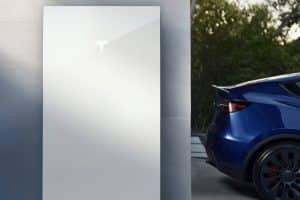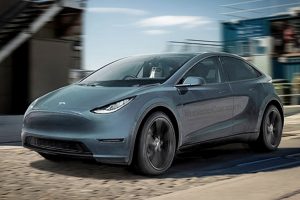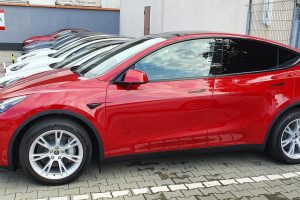Tesla is still planning to build electric vehicle battery cells in Germany at Giga Berlin, and faster than previously projected. This contradicts reports earlier this week that Tesla was delaying battery production in Germany with intentions to prioritize cell manufacturing in the United States, which would help the automaker benefit from recent government incentives.
Earlier this week, the Wall Street Journal reported Tesla was planning to delay battery cell production outside of the United States as recently-signed tax credit plans benefit domestic battery manufacturing. Citing people familiar with the matter, the WSJ claimed cell production equipment in Germany was potentially being shipped to the United States as the battery manufacturing plans had taken a drastic turn.
However, Tesla indirectly debunked the reports, according to German media outlet RBB24 on Friday (via Google Translate):
“The U.S. car manufacturer Tesla continues to produce batteries in Grünheide (Oder-Spree) in Brandenburg. The U.S. electric car manufacturer said this to third parties according to rbb information on Friday.”
The translation is slightly incorrect, as Tesla does not currently build battery cells in Germany.
The report also states that it is prioritizing U.S. production, but battery manufacturing systems and machinery has already been installed in Giga Berlin. It plans to begin battery production sometime early next year.
The battery manufacturing facility will provide cells for Tesla’s all-electric vehicles built at Giga Berlin, the automaker’s European production facility. Giga Berlin currently produces the Model Y crossover.
The battery facility will reportedly create 2,000 jobs in Grunheide, the municipality where the factory is located.
HOW U.S. BATTERY PRODUCTION WILL BENEFIT TESLA
According to the new stipulations of the EV tax credit, which is tied to the introduction of the Inflation Reduction Act, starting in 2023, EVs will only qualify for certain credits if the battery used in them meets certain conditions (via Congressional Research Service):
- Critical Minerals ($3,750): Starting in 2023 (and after the Treasury issues guidance on this requirement), to qualify for this portion of the credit, at least 40% of the value of the battery’s applicable critical minerals must have been extracted or processed in the United States or in a country with which the United States has a free trade agreement, or recycled in North America. The 40% amount increases to 50% in 2024, 60% in 2025, 70% in 2026, and 80% in 2027 and thereafter.
- Battery Components ($3,750): Starting in 2023 (and after the Treasury issues guidance on this requirement), to qualify for this portion of the credit, at least 50% of the value of the battery’s components must have been manufactured or assembled in North America. The 50% amount increases to 60% in 2024 and 2025, 70% in 2026, 80% in 2027, 90% in 2028, and 100% in 2029 and thereafter.
Tesla is going to benefit from these tax credits anyway, as it plans to build battery cells at its Gigafactory Texas production plant just outside Austin.
Tesla also manufactures the 4680 cells at a facility near the Fremont Factory in Northern California. Teslarati recently reported that Tesla filed to build battery cell manufacturing equipment at the Fremont Factory, where it currently does not manufacture cells.





